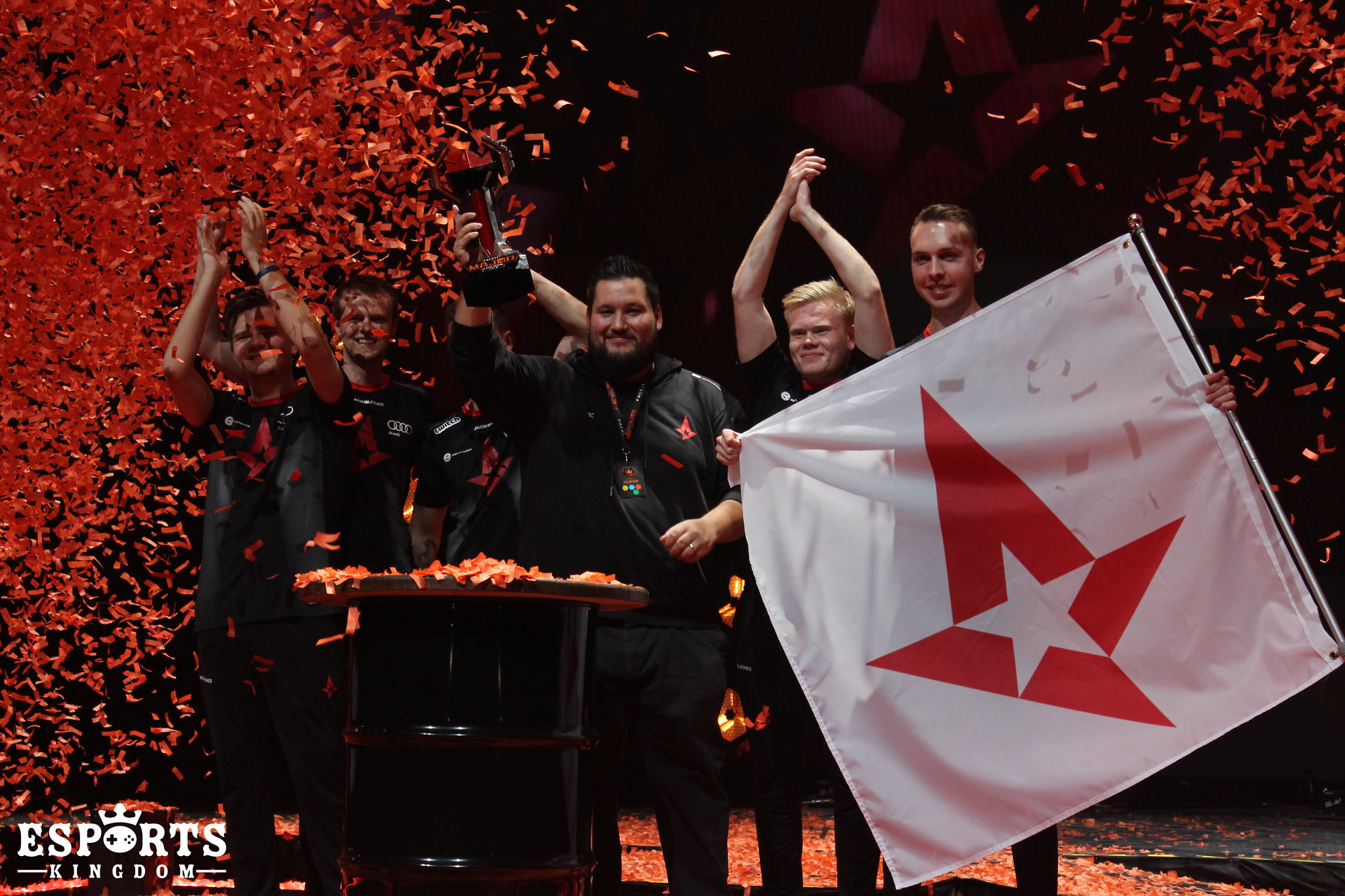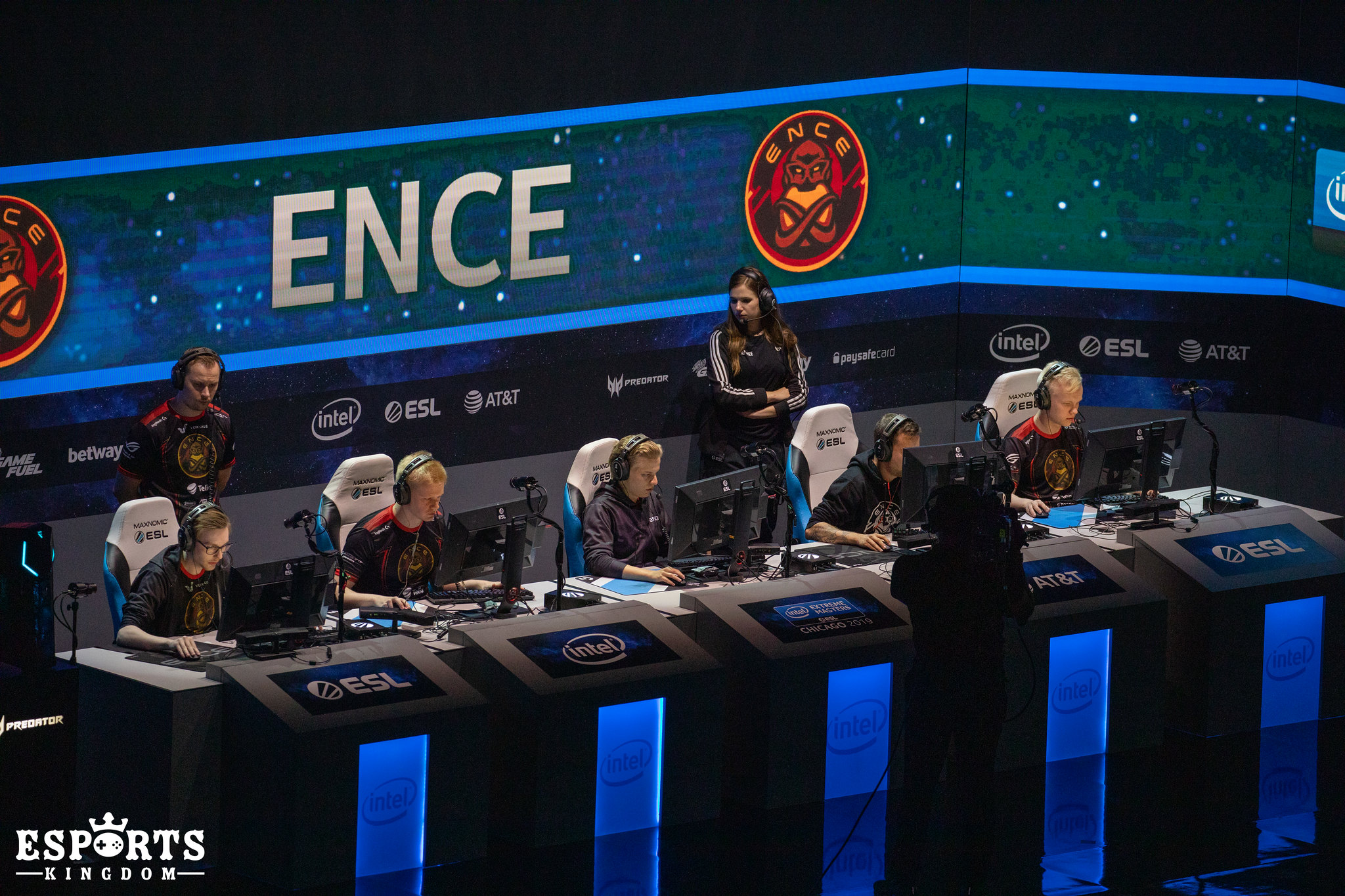Esports
How to approach extended rosters in Counter Strike

The news of Patrick “es3tag” Hansen and Jakob “JUGi” Hansen joining Astralis reignited the debate on how to approach extended rosters in Counter Strike, with some criticising the move as a pre-emptive signing in sight of a possible roster change rather than another reinvention of the way professional CS is played.
The Astralis Situation
Astralis coach Danny “zonic” Sørensen stated his desire to treat es3tag as an equal member of the roster and not as a “substitute”, with the aim to use the versatility of a 6-man roster to allow players to better deal with fatigue.
Solving fatigue and burnout issues is not the only advantage to having an extra player. IGL Lukas “gla1ve” Rossander and star Nicolai “dev1ce” Reedtz have both suffered health issues in the past, forcing the team to use temporary stand ins for tournaments. The prospect of having a sixth man already familiar with the team culture and always up to date with tactics in case of emergencies could turn out to be a positive factor.
While the addition of two extra players to the roster brings several benefits on paper, it is the decision of bringing the two specific players that could create issues for Astralis in the long term.
Hansen is not a star player capable of generating the same numbers as dev1ce, will not have the same impact as Andreas “Xyp9x” Højsleth and will definitely not be able to lead on the level of gla1ve. additionally, while not old, es3tag has not displayed the potential to reach an incredibly high ceiling- compared to some of the other Danish talent present on other teams.
Further confusion was caused by the organization’s decision to sign JUGi, a player that has famously never lived up to his potential and has failed to perform consistently on rosters such as North and Optic.
Once the news came out that gla1ve and Xyp9x were stepping down from the roster due to burnout and fatigue it became clear that Astralis were solely looking for a quick fix to rest players after denying them time off during 2019. This was just a short-term solution, desperately signing any Danish player that was either a free agent or close to their contracts expiring rather than a legitimate plan to secure the organisation’s future.
Let’s face it, es3tag and JUGI will not share equal amounts of practice or stage experience when -or if- gla1ve and Xyp9x come back. Synergy and perfectly drilled tactics were the key factors in bringing the Danish roster to legendary levels. Having extra players who supposedly split practice and stage time will inherently affect these areas of their gameplay.
Especially as there is not explicit advantage in playing Hansen or Jakob instead of any other player from the main roster.
Astralis are an organisation that pride themselves on the professionalism of their esports divisions and while their execution of an extended roster is flawed, it would be interesting to explore how CS teams could implement extended rosters. Having a look at professional sports could give us an answer.

Image by Esports Kingdom, Flickr
Youth development and loans
Valve has taken steps prohibiting organisations from running academy rosters since 2017, making the process of development of talent trickier for Counter Strike teams. This has resulted in the constant recycling of players as teams are encouraged to sign established names, regardless of their quality, due to the systematic desire to achieve short term success.
Astralis are by no means the only organisation that has sacrificed long-term plans due to a desire to achieve as soon as possible. Most esports organisations are locked in this short-term mentality, only looking at their next tournament in the calendar rather than trying to execute a long-term vision.
If long-term benefits were truly the concerns of the Astralis organisation, scouting and acquiring an up-and-coming Danish player to develop and shape into a starter for the future would have been a more sensible choice.
The reason why big organisations are reluctant to sign young players stem from a fear that they would be sacrificing performance for the foreseeable future until the rookie is able to reach his potential. To fix this the counter strike scene needs to change their approach towards the signing and development of young players.
In traditional sports such as football it is common for top clubs to acquire young, promising players and either keep them in their youth teams, sit them on the bench or loan them out to other clubs.
Normalising the loaning of players to other teams needs to be a priority if the Counter Strike scene is to mature and take its first steps in working towards long-term success.
Due to Valve’s regulations and CS’s inherent differences to traditional sports it will not be easy to adopt this approach but let’s imagine a possible scenario: Team A is going to compete in a Tier-1 tournament and as such, it will be unlikely for their young sixth member to find any playtime during the next 2-3 weeks due to the tournament’s importance and Valve’s new rules on RMR penalties attached to substitutions.
At the same time, there is a small Tier-2 tournament taking place and Team B is going to participate in it. Team B could ask to loan Team A’s sixth member for the duration of the tournament -or longer- for an agreed fee, allowing the player to continue his development and gaining vital stage experience without sacrificing the performance of the main roster.
Over time, as their career progresses, the youngster would find himself sharing more stage time with the main team. If successful, the player would ideally replace one of the members permanently, by which point the new member would have not only matured their game but also been familiarised with their role within the team and its culture.
If Astralis wanted to sign a promising, young member for their backup roster, they would be able to accomplish the objectives stated by zonic such as allowing players to receive adequate amount of rest and stand-in in case of emergencies but also be able to secure a potential future star.

ENCE has recently used a sixth member, Elias “Jamppi” Olkkonen- Image by Esports Kingdom, Flickr
There is room for improvement
There is no evidence suggesting that loaning players or even the concept of extended rosters itself will be the steps that allow the Counter Strike scene to mature, but it is important that the discussion takes place.
Recently we have witnessed more and more players across Counter Strike come out and speak against a calendar that is poorly planned and its unmanageable travel schedules.
There is potential for esports careers to last much longer than they currently do and it’s a question of creating a system that allows young players to experience a suitable development cycle as well as organising an event calendar with an appropriate amount of time off and prevent excessive flight schedules.
Read more on Esports here:
-

 News1 month ago
News1 month agoThe Best Male Tennis Players of All Time
-

 Uncategorised1 month ago
Uncategorised1 month agoWhat Dinosaur Has 500 Teeth?
-

 News1 month ago
News1 month agoThe Fastest Rugby Players Ever
-

 Football1 month ago
Football1 month agoThe Best Penalty Takers of All Time
-

 Football1 month ago
Football1 month ago10 of the most underrated footballers in the world right now
-

 Football1 month ago
Football1 month agoPlayers with the most goals in a Premier League season
-

 Football1 month ago
Football1 month agoWho is the Fastest Football Player in the World?
-

 Football1 month ago
Football1 month agoChelsea’s Possible Lineup For Next Season









